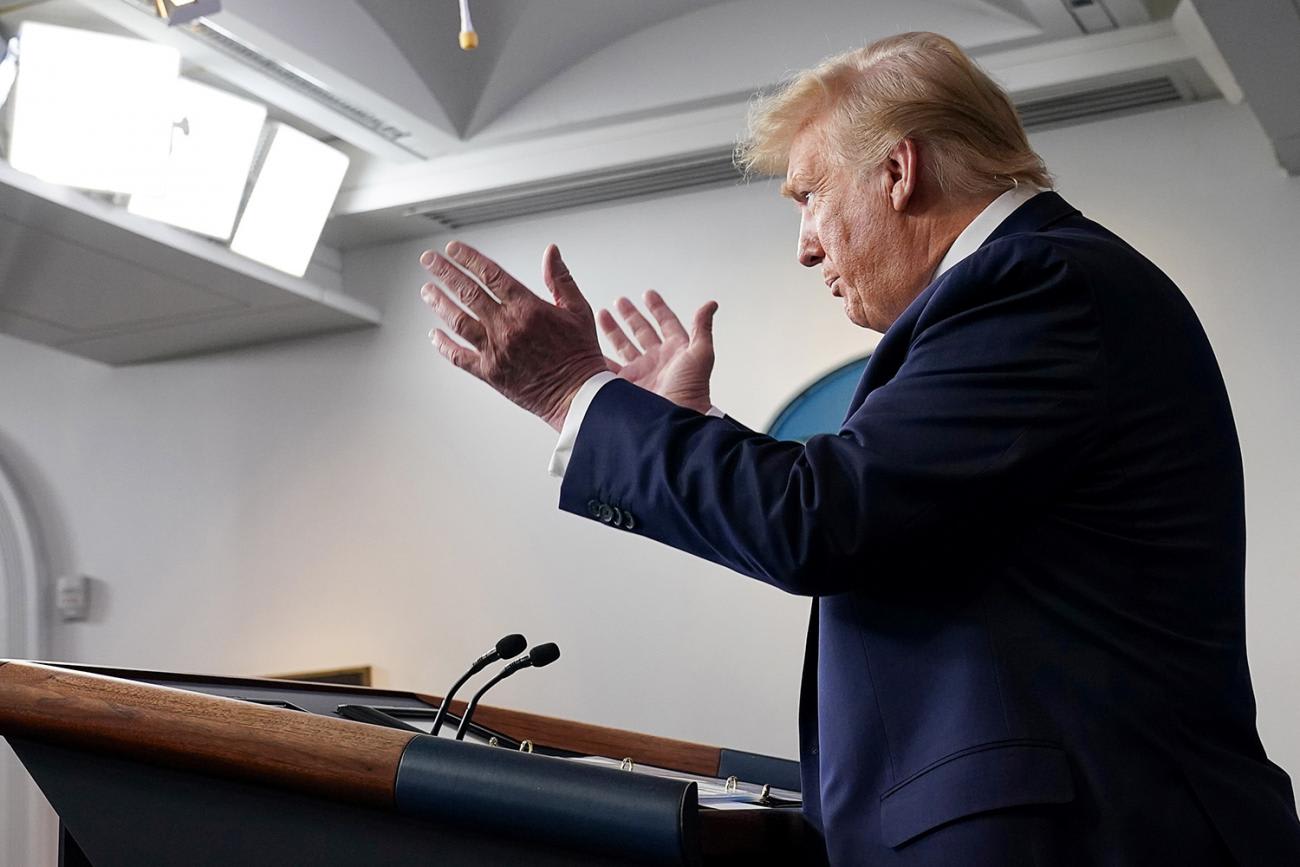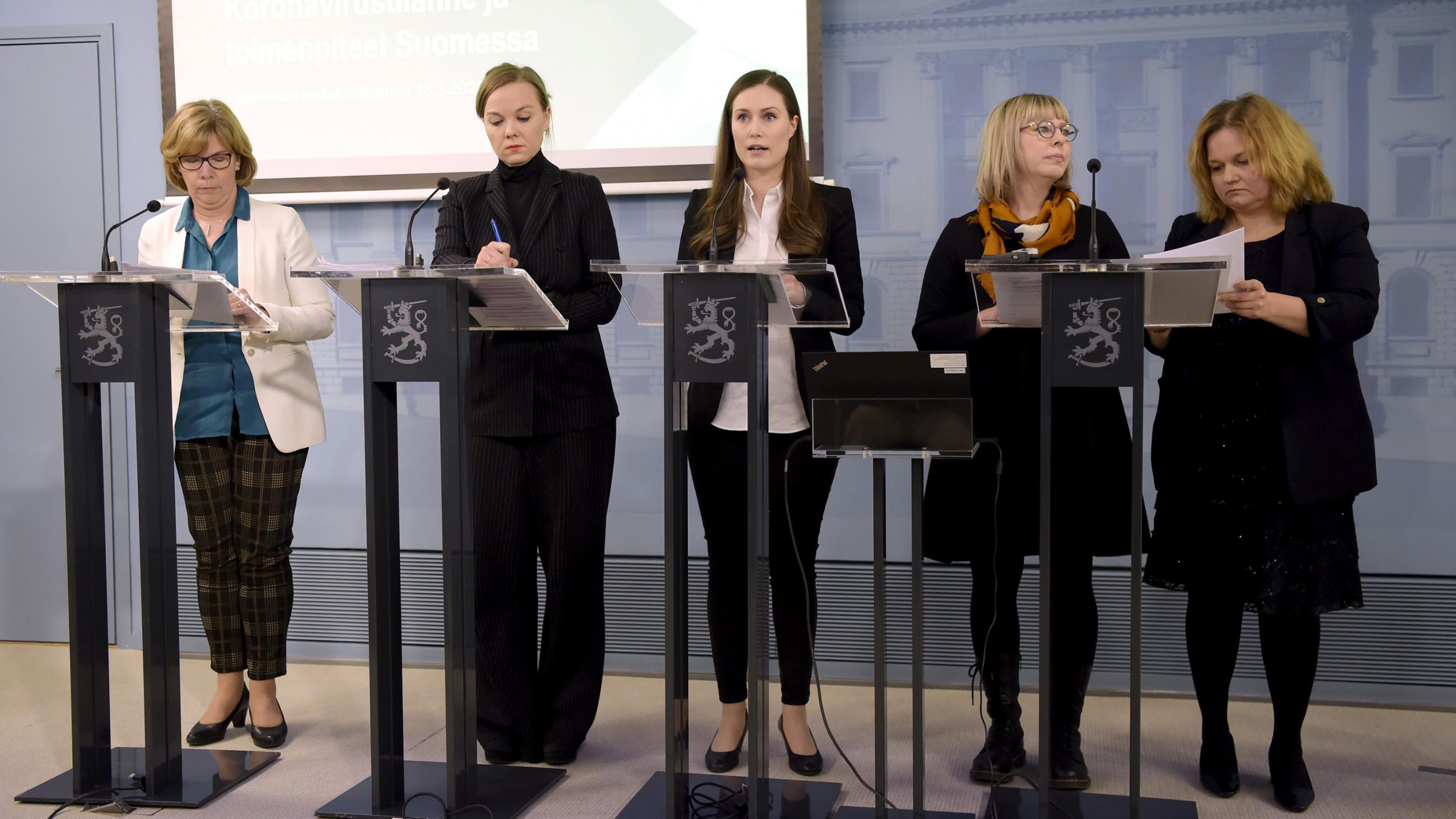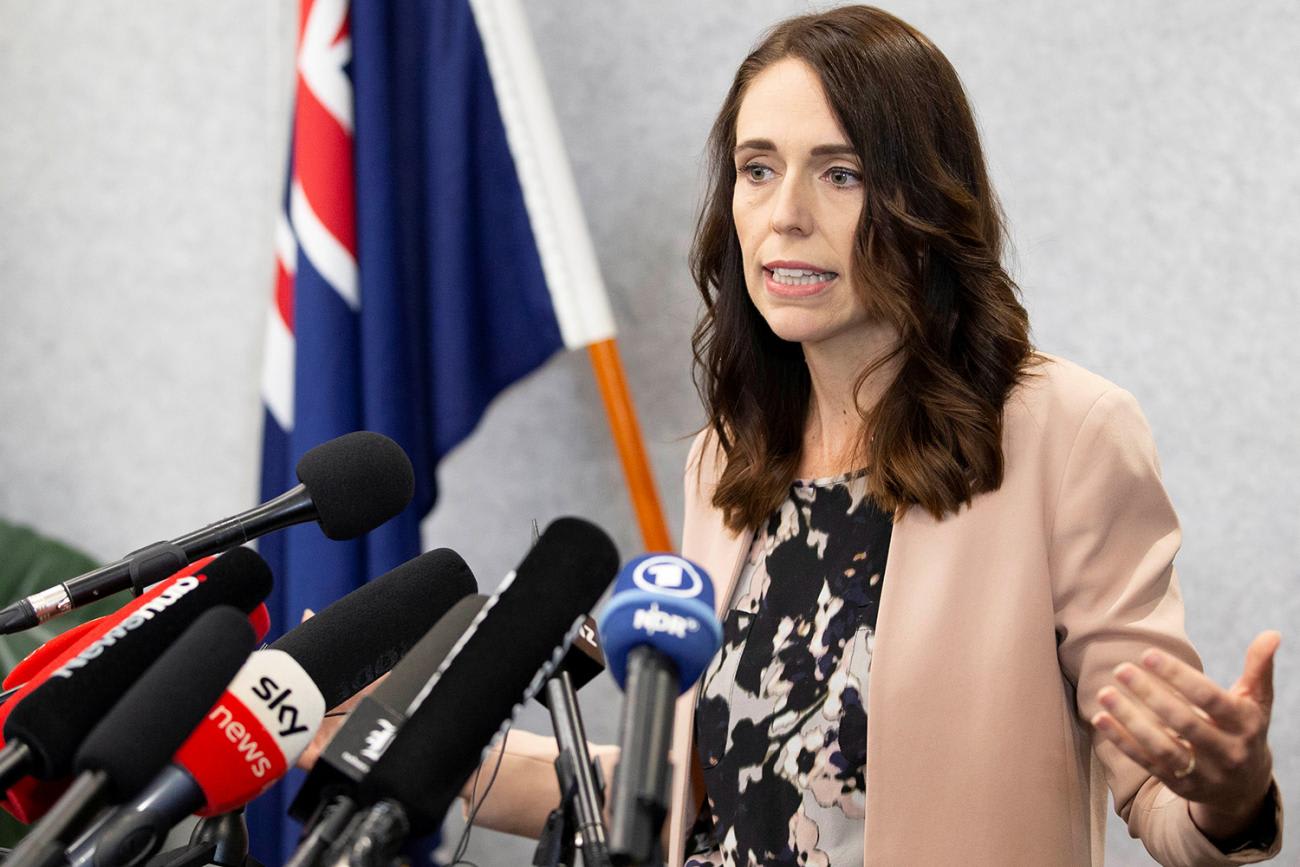The first three months of 2020 have presented the world with an unexpected major challenge—the widespread transmission of a novel coronavirus and the pandemic disease COVID-19. This pandemic has tested social, health, and economic systems and has both revealed and deepened existing inequities, including those of gender. These inequities must be considered for a response that is both efficient and ethical. As 70 percent of the health workforce, women comprise an integral part of any outbreak response formally and informally as family caretakers, yet this is not represented in major health leadership roles.
The gender dynamic also appears in how national leaders respond to the pandemic. Notably, there is a marked difference in the public statements made by political leaders regarding COVID-19. Their "COVID-speak" falls along the lines of their identified gender and their nation's political ideology.

Tone & Transparency
In this time of uncertainty, the demeanor of a leader in communicating with the public can be telling. The United States' President Donald J. Trump and the United Kingdom's Prime Minister Boris Johnson have taken similar tones. Both use short, clipped sentences, often expressing aggression or defensiveness.
For Trump, this abrupt change in tone happened in his Oval Office address on March 11 when he solemnly announced travel restrictions
One example is Johnson's repetition of "I know it's tough." A more important characteristic of these nations' responses can be seen in their leaders' sudden shift in tone. Both men adopted a casual approach at the beginning of March—assuring their citizens that "this will pass" and that their countries were more than prepared. However, both leaders had a sharp change in tone as the pandemic developed in both countries. For Trump, this abrupt change in tone happened in his Oval Office address on March 11 when he solemnly announced travel restrictions. Johnson followed suit when he announced a transition from "containment" to the "delay" phase. In contrast to these male figures, female leaders such as Finland's Prime Minister Sanna Marin and New Zealand's Prime Minister Jacinda Ardern provide a consistent steadiness in their public statements throughout the month.
These female leaders convey confidence in their use of clear and concise language, outlining the steps taken or to be taken. Germany's Chancellor Angela Merkel expresses a similar tone, using specific action-oriented language to encourage the public.

Economics & Welfare
Beyond language and tone, the content and proposed actions in these statements have also differed. While every nation is concerned with economics and local businesses, the level of priority on the governments' agenda varies. In half of the first ten statements made by Trump in the month of March, the first topic he broached was the economy. Economic concerns, from big business bailouts to providing sick leave, have been the focus of the U.S. president's response.
When Merkel discusses the economic impact, she stresses measures to support small businesses and the importance of social protection
When discussing proposed legislation, Trump has tended to focus on what it means for businesses. He names CEOs and leaders of large private sector corporations in his speeches and invites them to provide updates at press briefings. As leaders of countries that support universal health coverage and feminist-focused development policies, Johnson and France's President Emmanuel Macron express concern for businesses, but emphasize the role of government in supporting the people affected, rather than the corporations themselves. When Merkel discusses the economic impact, she stresses measures to support small businesses and the importance of social protection. Ardern acknowledges the economic impact the pandemic will have, but focuses on the specific provisions of social and health services that will be available to the public, describing wage subsidies and visa extensions.
Approaches to addressing economics vary across the different genders, with male leaders largely focusing on businesses and female leaders emphasizing support for the individual. While every leader mentions provisions for social welfare, none of them address protections for particular vulnerable populations or gender-specific concerns such as domestic violence or single-household incomes.

War & Aggression
An often-used metaphor in disease discussions is the militarization of health. Johnson, Macron, and Trump make ample use of this analogy, likening the pandemic to a war that must be won and the virus to an enemy that must be defeated. Particularly, Trump used war analogies in thirteen of the nineteen statements he gave in March.
Trump used war analogies in thirteen of the nineteen statements he gave in March.
Additionally, he emphasizes the "foreign" nature of the virus, referring to it as "the Chinese virus," defending that designation when challenged by reporters, and has consistently promoted an "us versus them" mentality in his response to the unfolding pandemic through border and migration control efforts. In contrast, the only time Merkel mentions the word "war" is in reference to World War II as an example of the last time the nation needed to come together in solidarity. In New Zealand, Ardern strays far from language around "fighting" this pandemic and signs off each statement with the words "be kind." This language is important because it affects how communities prepare and care for each other. Statements such as Trump's are divisive and are likely partially responsible for the rise in racist and xenophobic actions towards Asian Americans, whereas sentiments like Arden's underline a need to care for each other in time of crisis.

Emotions & Making It Personal
While every leader acknowledges the public's feelings of anxiety and worry, they address it in several ways. Johnson explicitly states the toll on human lives the pandemic will have while Macron and Merkel ask citizens to think about how their behaviors affect their own parents or grandparents. Merkel goes one step further, emphasizing "these are not just abstract numbers in statistics, this is about people." Ardern takes an even more familiar approach, using her own experiences "as a mum" to empathize with the worries of parents. A common thread that links all of these leaders is their call for solidarity and sacrifice for the greater good. While their methods have varied, there is a call for each country to come together, the sum of their parts more powerful than the whole, in order to come out the other side of the COVID-19 pandemic a more unified society.
These are not just abstract numbers in statistics, this is about people
German Chancellor Angela Merkel
The approaches taken by political leaders have affected the course of the pandemic in their respective countries. Where Trump and Johnson started out confident in their preparedness, they soon switched to an aggressive discourse, which has not necessarily been reflective of a more effective response. The female leaders mentioned above were cautious and measured from the beginning of March, taking precautions to protect and prepare their nations. It is worth noting the lower mortality rate in these countries (~ 1 percent versus global ~5 percent). This could suggest that gender inequity in leadership roles is affecting unequal responses across governments and nations. While the number of women in political leadership positions has risen, the majority of the decision-makers shaping pandemic response are men. It is clear that a call for more inclusive representation and different perspectives could be a turning point in the world's response to COVID-19.

EDITOR'S NOTE: Women in Global Health's Research Associate Sara Dada provided the research analysis for this story.











